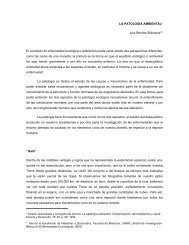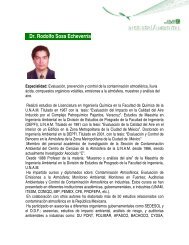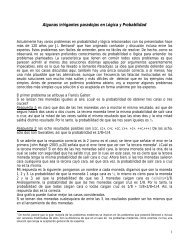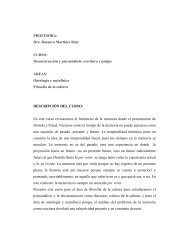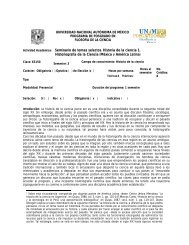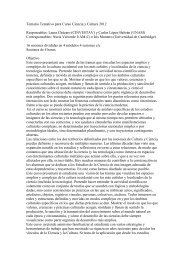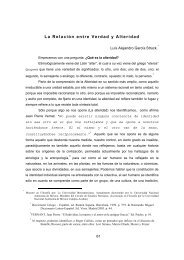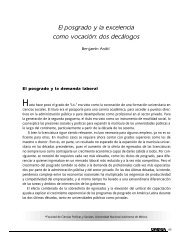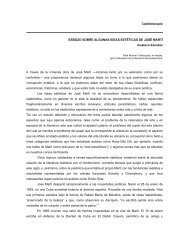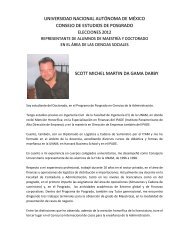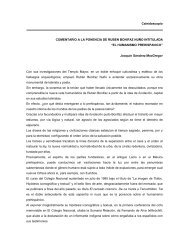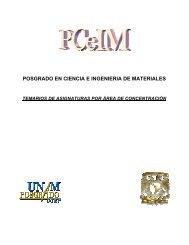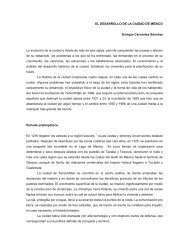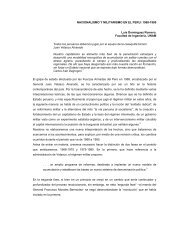Review: Resisting the Ninth Author(s): Richard Taruskin Reviewed ...
Review: Resisting the Ninth Author(s): Richard Taruskin Reviewed ...
Review: Resisting the Ninth Author(s): Richard Taruskin Reviewed ...
Create successful ePaper yourself
Turn your PDF publications into a flip-book with our unique Google optimized e-Paper software.
is changed in 'Che faro senza Euridice,' it becomes<br />
fit for a Punch and Judy show." This<br />
seems pretty definite, as well as colorful. But<br />
what Gluck actually wrote, in his letter of dedication<br />
of his opera Paride ed Elena to <strong>the</strong> Duke<br />
of Braganza in 1770, was this: "By changing very<br />
little in <strong>the</strong> expression of my aria for Orfeo, 'Che<br />
faro senza Euridice,' it might be turned into a<br />
little puppet dance. A note more or less sustained,<br />
a rinforzo distorted ei<strong>the</strong>r in time or in<br />
volume, an appoggiatura out of place, a trill, a<br />
cadenza, a run can easily ruin a whole scene in<br />
such an opera...."2 He isn't talking about<br />
tempo at all, but about <strong>the</strong> tendency of singers<br />
to be careless with <strong>the</strong>ir embellishments and<br />
dynamics. To <strong>the</strong> extent that <strong>the</strong> remark might<br />
be extrapolated to tempo, it could only refer to a<br />
poorly chosen one (in this case, obviously, one<br />
that is too fast), ra<strong>the</strong>r than failure to maintain a<br />
steady pace.<br />
More seriously doctored is <strong>the</strong> second authority,<br />
<strong>the</strong> German pastor and dilettante composer<br />
Carl Ludwig Junker (1748-97; Lang elevated<br />
him to <strong>the</strong> rank of a "classic authority on<br />
eighteenth-century practices"), who in 1782<br />
published a little handbook entitled Some of <strong>the</strong><br />
Chief Duties of a Musical Director ("Einige der<br />
vornehmsten Pflichten eines Capellmeisters<br />
oder Musikdirektors"), from which Lang extracted<br />
<strong>the</strong> following sentence (<strong>the</strong> interpolation<br />
in brackets is his): "Modifications of tempo<br />
can be better expressed by <strong>the</strong> composer himself,<br />
by his setting and coloring [i.e., by <strong>the</strong> note<br />
values employed and by <strong>the</strong> nature of <strong>the</strong> orchestration]<br />
than by <strong>the</strong> tempo changes caused<br />
by <strong>the</strong> conductor." Even before verification it is<br />
clear that this is garbled; it makes no sense. One<br />
cannot tell whe<strong>the</strong>r <strong>the</strong> conductor is being exhorted<br />
to forbear or <strong>the</strong> composer is being encouraged<br />
to be more specific. Does <strong>the</strong> writer<br />
want more modification or does he want less?<br />
It turns out that <strong>the</strong> remark has been quoted<br />
out of context, and that Junker was really saying<br />
virtually <strong>the</strong> opposite of what Lang purported to<br />
prove by quoting him. Here is <strong>the</strong> original statement:<br />
It is true that <strong>the</strong> composer, through his writing itself,<br />
through <strong>the</strong> various types of nuances [available<br />
to him], could better and more completely express<br />
<strong>the</strong>se modifications than <strong>the</strong> conductor [could] by<br />
varying <strong>the</strong> musical time-sequence; but it is just as<br />
true that <strong>the</strong> two of <strong>the</strong>m, composer and performer,<br />
must work hand in hand, and that variation in <strong>the</strong><br />
time-sequence, as an auxiliary art, remains indispensable.<br />
Junker actually introduces <strong>the</strong> matter of<br />
tempo-modification by invoking Lang's "steady<br />
and relentless tempo" (eine vollig gleichfdrmige<br />
Bewegung), but only as a straw-man<br />
(p. 36). He <strong>the</strong>n continues with this rhetorical<br />
question:<br />
Must every piece be performed at <strong>the</strong> given tempo<br />
straight through to <strong>the</strong> end, without ever inclining<br />
toward a greater speed or slowness? Or ought this<br />
tempo, even right in <strong>the</strong> middle of <strong>the</strong> piece, be somewhat<br />
adjusted, ought it be accelerated, ought it be<br />
held back?<br />
The first alternative is not even given consideration.<br />
The only choice, it turns out, is between<br />
accelerating and holding back. Stated in most<br />
general terms, <strong>the</strong> reason for constant tempo adjustments<br />
goes right to <strong>the</strong> heart of matters aes<strong>the</strong>tic.<br />
The sentence that immediately precedes<br />
<strong>the</strong> one quoted by Lang reads as follows: "There<br />
is no passion whose movement, itself wholly<br />
uniform, might be so circumscribed; it ranges,<br />
throughout, through various modifications of<br />
movement." And elsewhere, with regard to<br />
contrasting moods, Junker observes that<br />
Nothing is sudden in nature; no change takes place<br />
through instantaneous transformation of opposing<br />
moods, no expression changes at a bound into its opposite.<br />
There are intermediate shades, which an expression<br />
must go through if it wishes to change into<br />
its opposite.3<br />
PERFORMERS &<br />
INSTRUMENTS<br />
2The original Italian: "Non ci vuol nulla, per che la mia Aria<br />
nell'Orfeo: 'Che far6 senza Euridice,' mutando solamente<br />
qualche cosa nella maniera dell'espressione, diventi un<br />
saltarello da Burattini. Una nota pii o meno tenuta, un rinforzo<br />
trascurato di tempo, o di voce, un appoggiatura fuor di<br />
luogo, un trillo, un passagio, una volata, puo rovinare tutta<br />
una scena in un Opera simile."<br />
3The original passages in Junker, all from <strong>the</strong> section entitled<br />
"On Tempo" (Von der Bewegung), are as follows:<br />
Dass diese Modifikationen, der Komponist, durch<br />
seinen Satz selbst, durch die verschiedenen Arten der Kolorierung,<br />
besser und vollstandiger ausdricken konne, als der<br />
Direktor, durch die Veranderung der musikalischen Zeitfolge,<br />
bleibt richtig; aber eben so richtig bleibt es, dass<br />
253



